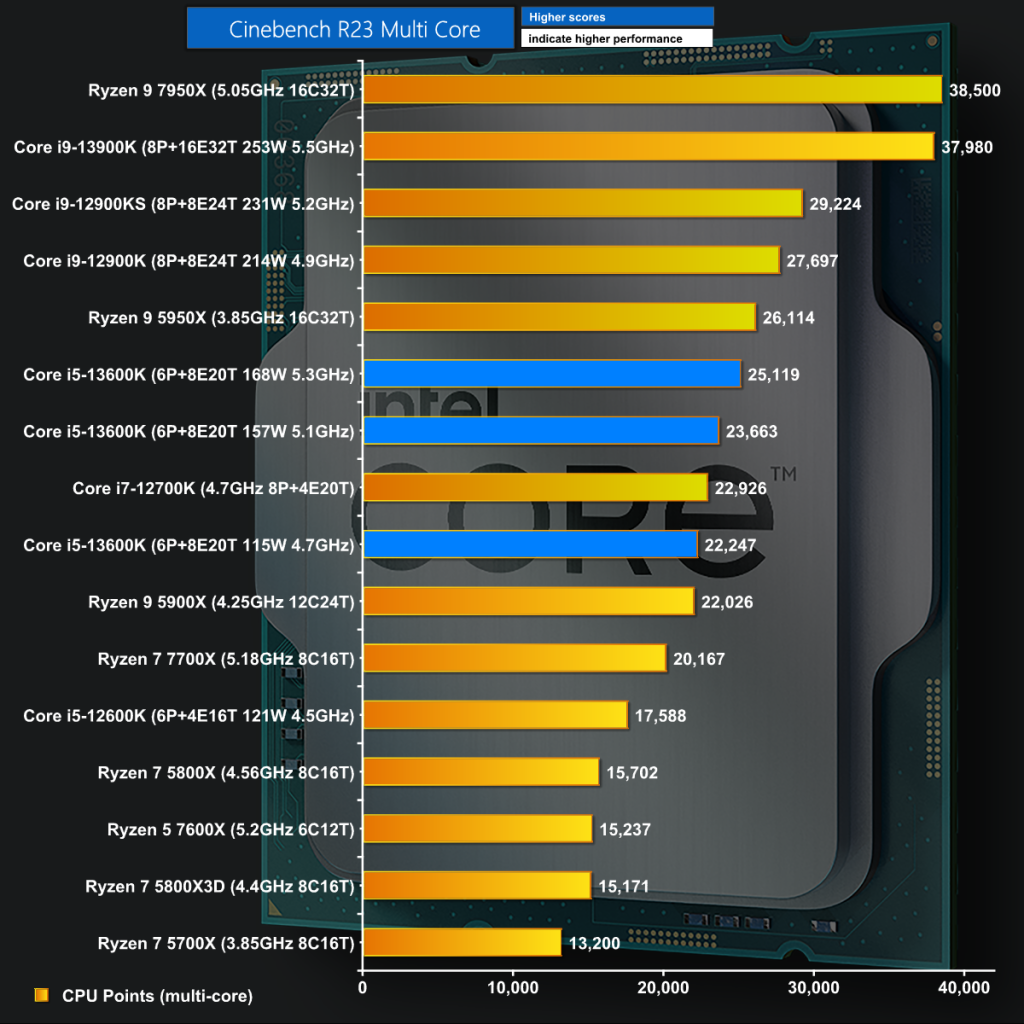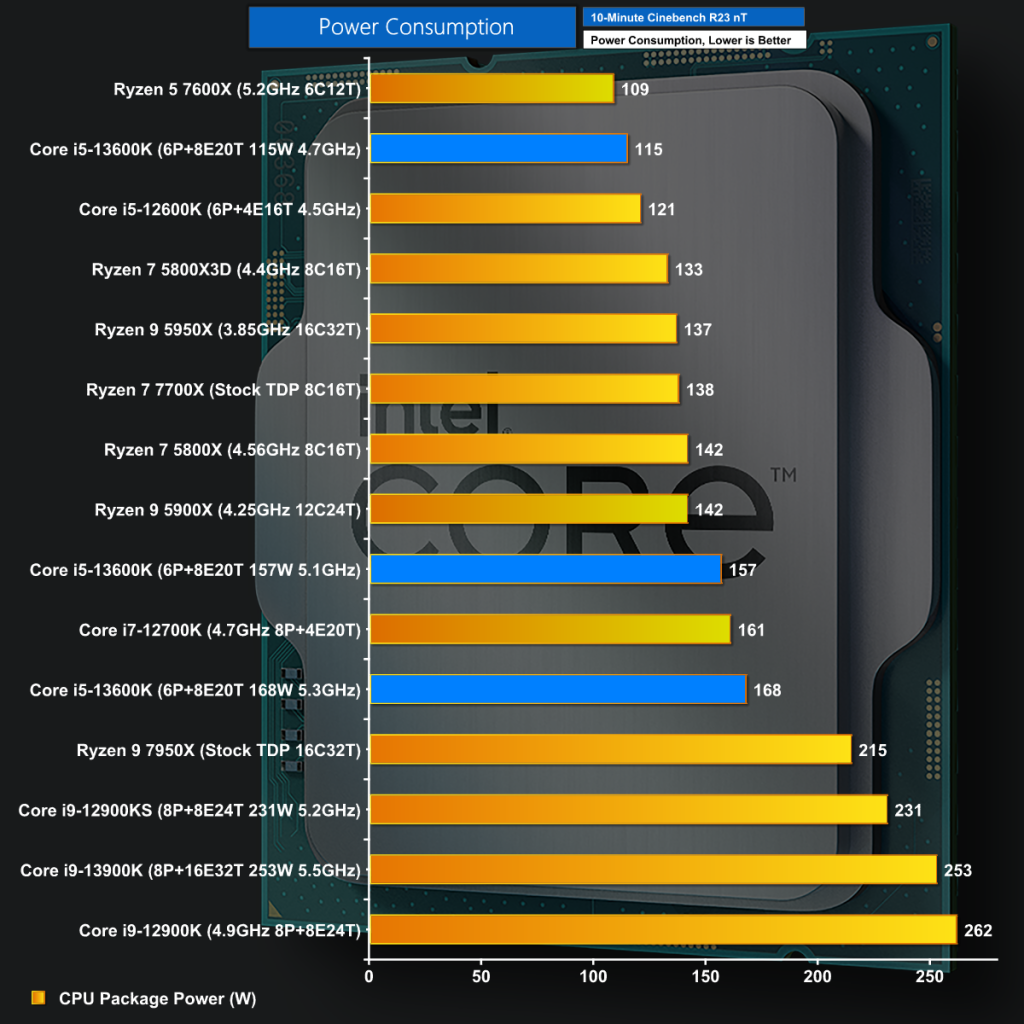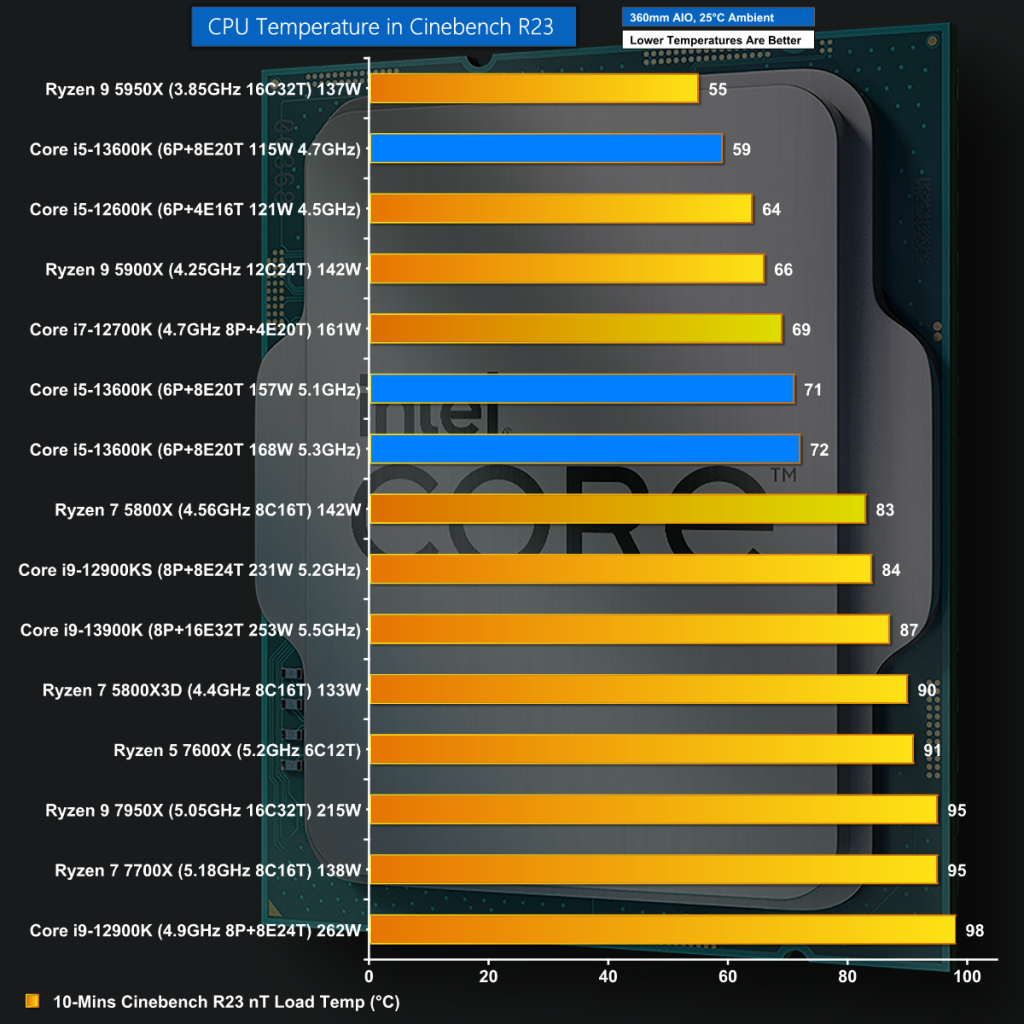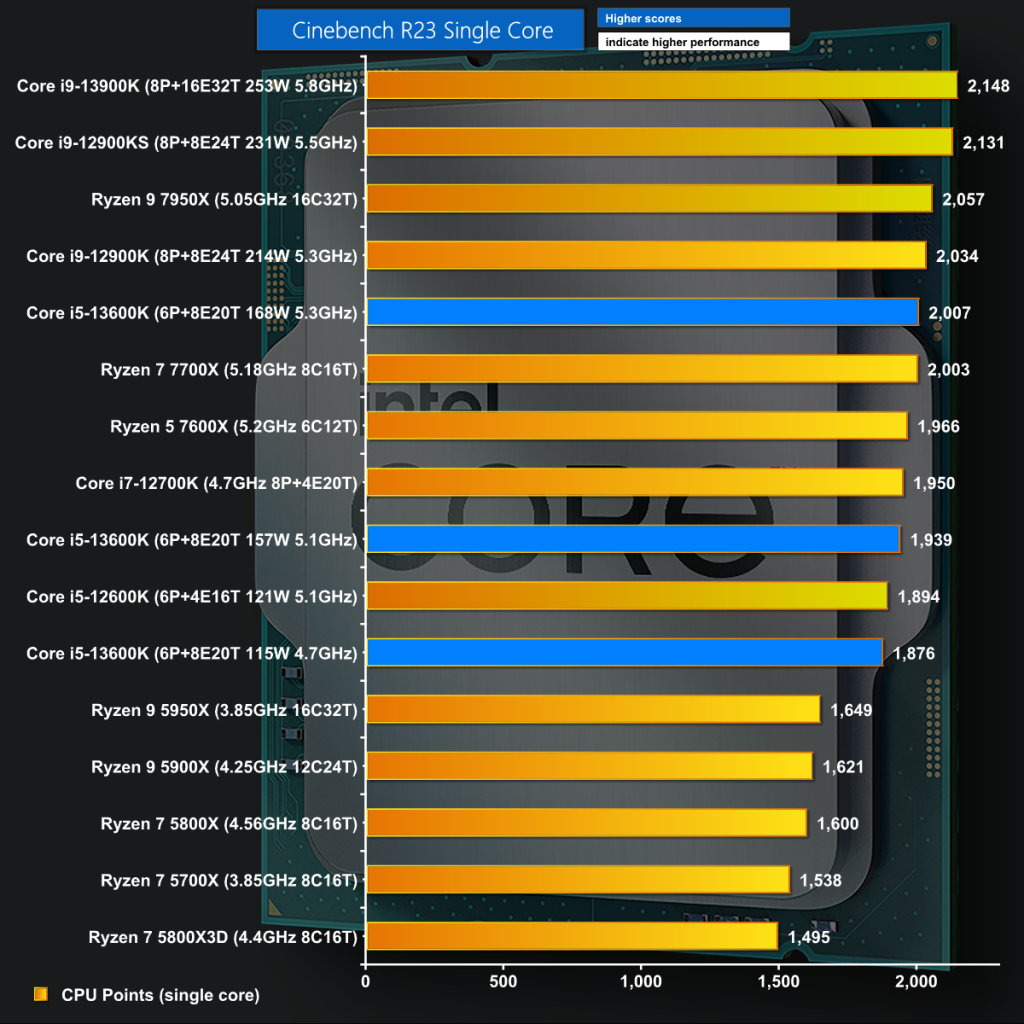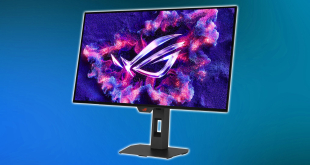Performance Testing
We shan't waste your time with waffle and blah but instead will dive straight in to the performance testing.
Test System:
- Processor: Intel Core i5-13600K (14 cores/20 threads)
- CPU Cooler: Corsair H150i Elite LCD
- Motherboard: Asus ROG Maximus Z790 Hero BIOS 0604
- Memory: 32GB G.Skill Trident Z5 RGB DDR5-6000
- Graphics card: Gigabyte Radeon RX 6950 XT Gaming OC 16GB
- Power supply: Seasonic Prime TX-1600W Titanium
- SSD: 500GB Sabrent Rocket 4.0 M.2 NVMe
- OS: Windows 11
Cinebench R23 Multi Core
In Cinebench R23 Multi Core we see the Core i5-13600K performing very well at default settings. You can add an extra six percent performance with a simple overclock to 5.3GHz. The truly impressive thing is that capping the power at 115W barely affects performance as the new Core i5 leaves both the old i5-12600K and the new Ryzen 5 7600X trailing behind.
Cinebench R23 Power and Clock Speeds
Part of the explanation for this increased performance is the higher power that is fed to the CPU. This helps boost clock speeds however the architecture of the new Raptor Cove P-Cores clearly also plays its part.
Cinebench R23 CPU Temperature
In Cinebench R23 CPU we were perfectly happy with the temperatures we saw however this is a combination of the cooler, Vcore, power limit and clock speed. If your motherboard manufacturer uses brute force in the BIOS settings you could easily raise the CPU temperature by 10-15 degrees Celsius so a degree of finesse is required.
Cinebench R23 Single Core
In Cinebench R23 Single Core the scores are decent at 5.1GHz and slightly better at 5.3GHz, however they fall a distance behind the Core i9-13900K which can operate up to 5.8GHz.
 KitGuru KitGuru.net – Tech News | Hardware News | Hardware Reviews | IOS | Mobile | Gaming | Graphics Cards
KitGuru KitGuru.net – Tech News | Hardware News | Hardware Reviews | IOS | Mobile | Gaming | Graphics Cards


